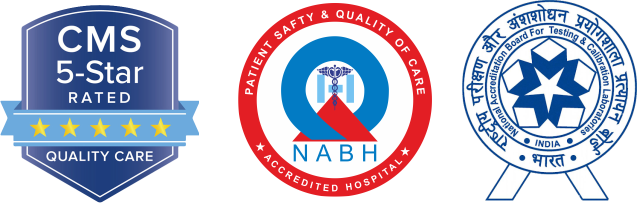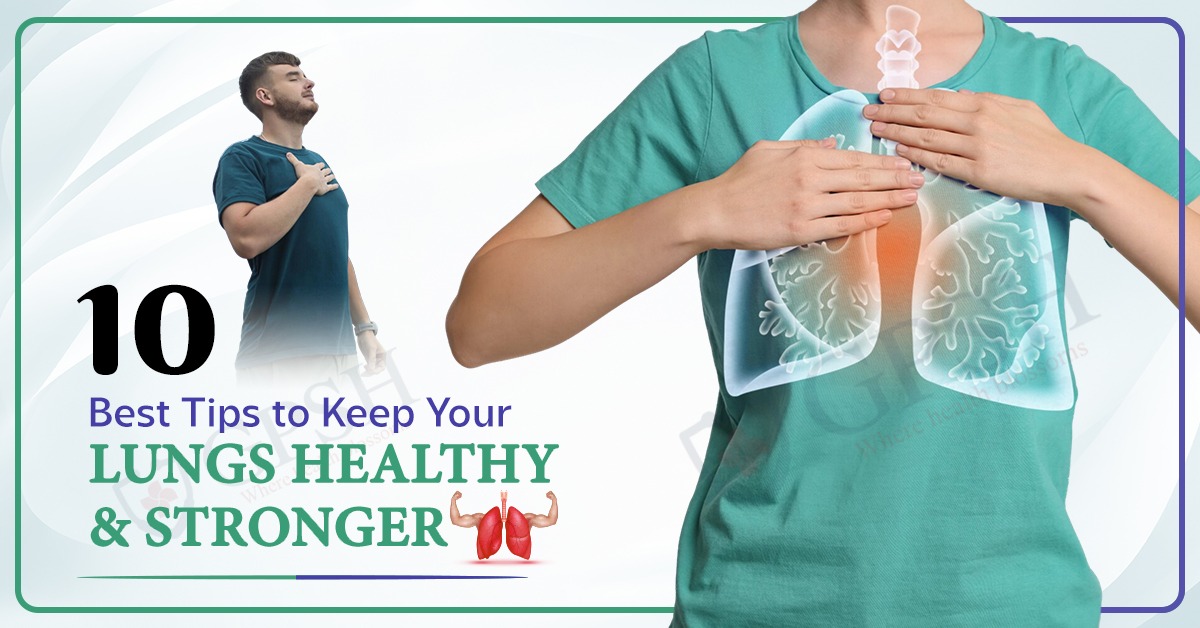Overview
Maintaining healthy and strong lungs is essential for overall well-being and longevity. With every breath, our lungs play a critical role in supplying oxygen to the body and removing carbon dioxide. Therefore, it’s vital to adopt various strategies to optimize lung health and function. From quitting smoking to staying physically active, practicing deep breathing exercises to maintaining indoor air quality, there are numerous ways to ensure the well-being of your lungs. In this overview, we’ll explore key strategies and tips to keep your lungs healthy and stronger, empowering you to take proactive steps towards better respiratory health and a higher quality of life.
10 Best Ways to Keep Your Lungs Healthy & Stronger
In our fast-paced lives, it’s easy to overlook the health of our lungs. Yet, they play a vital role in keeping us energized and active. To ensure optimal lung health, here are ten essential tips to keep in mind. Incorporating these into your routine can significantly contribute to maintaining healthy lungs and overall well-being.
- Quit Smoking: This might be the most crucial step you can take for your lung health. Smoking damages lung tissue and increases the risk of lung cancer and respiratory diseases. Seek support from friends, family, or healthcare professionals to quit successfully.
- Stay Active: Regular physical activity not only improves cardiovascular health but also strengthens your lungs. Engage in aerobic exercises like walking, jogging, swimming, or cycling to enhance lung capacity and efficiency.
- Practice Deep Breathing: Deep breathing exercises help expand lung capacity and improve airflow. Incorporate techniques like diaphragmatic breathing or pursed-lip breathing into your daily routine to enhance lung function.
- Maintain Indoor Air Quality: Ensure proper ventilation at home and workplace to minimize exposure to indoor air pollutants like dust, mold, and chemicals. Use air purifiers and avoid smoking indoors to maintain clean air.
- Avoid Outdoor Air Pollution: Limit exposure to outdoor air pollution by checking air quality forecasts and avoiding outdoor activities during high pollution days. Use masks or scarves when pollution levels are high, especially in urban areas.
- Stay Hydrated: Drinking an adequate amount of water helps keep the mucosal lining in your lungs moist, facilitating easier breathing and reducing the risk of respiratory infections.
- Eat a Balanced Diet: Consume a diet rich in fruits, vegetables, whole grains, and lean proteins. Antioxidants found in colorful fruits and vegetables can help protect lung tissue from damage caused by free radicals.
- Maintain a Healthy Weight: Obesity can put extra pressure on your lungs and affect breathing efficiency. Maintain a healthy weight through a balanced diet and regular exercise to reduce the risk of respiratory problems.
- Get Regular Check-ups: Regular check-ups with your healthcare provider can help detect any early signs of lung problems and monitor lung function over time. Discuss any concerns or symptoms you may have regarding your lung health.
- Practice Good Hygiene: Wash your hands frequently to prevent the spread of respiratory infections like colds and flu. Avoid close contact with people who are sick, and consider getting vaccinated against flu and pneumonia.
You Can read also:- 12 Healthy Foods That Can Improve Heart Health
Here are some other practices to keep your lungs healthy:
- Practice Mindful Breathing: Incorporate mindfulness techniques into your daily routine to reduce stress and improve lung function. Mindful breathing exercises, such as meditation or yoga, can help you focus on your breath, promoting relaxation and enhancing respiratory efficiency.
- Limit Exposure to Indoor Allergens: Dust mites, pet dander, and mold can trigger allergies and worsen respiratory conditions. Take steps to reduce indoor allergens by regularly cleaning and vacuuming your home, using allergen-proof mattresses and pillow covers, and keeping pets out of bedrooms.
- Avoid Exposure to Secondhand Smoke: Even if you don’t smoke yourself, exposure to secondhand smoke can still harm your lungs. Avoid places where smoking is allowed, and encourage smokers in your household or social circles to quit for the benefit of everyone’s lung health.
- Stay Up-to-Date with Vaccinations: Certain respiratory infections, such as influenza and pneumonia, can pose a serious threat to lung health. Stay proactive by getting vaccinated against these illnesses, especially if you have underlying health conditions or are in a high-risk group.
- Maintain Proper Posture: Good posture not only benefits your musculoskeletal system but also supports optimal lung function. Sit and stand up straight to allow your lungs to fully expand and contract, improving breathing efficiency and reducing strain on respiratory muscles.
Conclusion
In conclusion, prioritizing the health and strength of your lungs is paramount for a vibrant and active life. By incorporating the best ways to maintain optimal lung health, such as quitting smoking, staying physically active, and practicing good hygiene, you can significantly reduce the risk of respiratory diseases and enhance overall well-being. Remember, small lifestyle changes can yield significant benefits for lung health over time. Whether it’s seeking support to quit smoking or ensuring regular exercise and check-ups, every effort counts towards ensuring your lungs remain healthy and strong for years to come. Should you ever need specialized care, consider Shekhawati hospital Jaipur, the Best Pulmonary Hospital, for expert guidance and treatment tailored to your respiratory needs.








